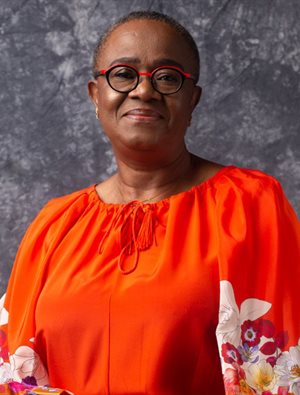#FOS22: How women, Africa play a central role in realising a sustainable future for all
Moderator Zanele Morrison led a discussion with Sue Allchurch, chief of outreach and engagement, and Olajobi Makinwa, chief of intergovernmental relations and Africa, both from the UN Global Compact. They tackled the topic of progress on the UN Sustainable Development Goals (UNSDGs) and Africa's role in achieving sustainability.

Allchurch pointed out that the world is well off track in achieving the UNSDGs by 2030 - according to the Social Progress Imperative, we are 62 years behind schedule, and the Covid-19 pandemic has only made matters worse.
Women empowerment a potential silver bullet
Looking at gender equality, for example, Allchurch noted that at our current pace - according to data from the World Economic Forum, it would take 267 years to close the economic gender gap.
The benefits of women participating in economies are multiple, she noted, and could serve as the silver bullet to achieving all the other SDGs. Women-owned businesses deliver twice as much as male-owned businesses for every dollar invested. They plough more of their money back into their communities and families. And women in leadership invest significantly more in innovations that have a social and environmental impact, explained Allchurch.
"We also know that women-owned businesses employ more women - two and a half times at the rate of men-owned businesses. So if we can get more women entrepreneurs... we will have better businesses, we'll have better societies, and we'll have better emissions progress," she said.
Sustainability is about mindset

While Africa has abundant human and natural resources, the continent faces numerous challenges, including poverty, inequality and inadequate infrastructure, said Makinwa. Sustainability, she noted, is about mindset and how we navigate these challenges as a continent while effectively harnessing our resources so that all may benefit.
Covid-19 has been an eye-opener for the continent, she said, underscoring the need for openness, accountability, partnerships and solidarity. "We saw during Covid-19 how the private sector partnered with governments to address the challenges, and this is what sustainability is also about - ensuring that all stakeholders are on board in addressing the challenges that we face today," she said.
The UN Global Compact, explained Allchurch, works with the Science-based Targets initiative to help businesses set emissions reduction goals that align to the below-2°C global warming target outlined in the Paris Agreement. It also focuses on working towards a fair and just transition to a green economy, collaborating with partners across various fields. "We need to make sure that no geography, no people, no sector is left behind in this chain," she said.
"In the next eight years the world has to halve its emissions output that happens each year... So everyone, including Africa, has to fully engage," emphasised Allchurch.
Africa has to prioritise its unique challenges
While acknowledging that the climate crisis requires urgency, Africa has to also prioritise its most pertinent challenges so that it can develop to its own full potential, said Makinwa. To this end, the UN Global Compact launched its Africa strategy last year to ensure its programmatic offerings are relevant to the continent.
The organisation has also established the Africa Business Leaders Coalition (ABLC), providing companies with a platform to advocate for issues most relevant to Africa. The ABLC is this year focusing on climate action ahead of COP27 in Sharm el-Sheikh, Egypt.

About Sindy Peters
Sindy Peters (@sindy_hullaba_lou) is a group editor at Bizcommunity.com on the Construction & Engineering, Energy & Mining, and Property portals. She can be reached at moc.ytinummoczib@ydnis.Related
The Future of Sustainability Conference 2025: The countdown begins! 11 Mar 2025 #WomensMonth: Judy Foster on what's needed to make it in the property industry 3 Aug 2023 #PropertyRevamped: 5-star Shawu's Hills Wildlife Estate offers refuge from city life 28 Jul 2023 #PropertyRevamped: Wale Street Chambers responds to shifting market dynamics with upcycled office space 25 Jul 2023 #PropertyRevamped: TUHF driving economic transformation in SA's urban rental market 21 Jul 2023 #PropertyRevamped: Newinbosch creating a connected, inclusive community in Stellenbosch 18 Jul 2023

























